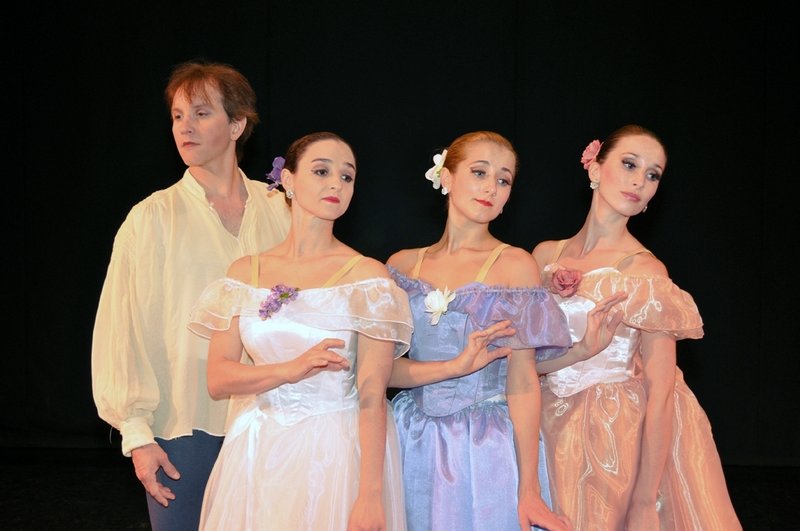Robert Schumann’s song cycle “Dichterliebe,” or “The Poet’s Love,” has been performed, recorded and studied for many generations.
Its popularity proves the timelessness of the work, as well as its relevance to the human experience. Generation after generation come to this monumental piece of music in an attempt to connect in a fresh way.
This weekend, Maine State Ballet becomes the latest arts group to interpret Schumann’s epic work, which he wrote in the mid-1800s.
The Falmouth-based ballet company will perform “The Poet’s Love” in collaboration with baritone Aaron Engebreth and pianist Alison d’Amato, co-directors of the Florestan Recital Project. Also on the program will be “Napoli” and “Souvenir.”
Maine State Ballet artistic director Linda MacArthur Miele conceived the ballet, which fuses classical music, romantic poetry and dance.
The collaboration began more than a year ago. Miele and Engebreth began talking about working together soon after the latter’s daughter signed up for ballet classes with the school.
Engebreth, who lives in Portland, appreciated the atmosphere at Maine State Ballet, and thought it would be nice to work with the company. He and Miele listened to a lot of music before settling on Schumann’s song cycle.
“It’s a piece that lends itself to movement very well,” said Engebreth, who sings often with dance companies across the country, including the Boston Ballet and the Mark Morris Dance Group. “It has been staged before by theater companies. I do not know many dance companies that have settled on it.”
Mielie loved the music as soon as she heard it. “The music was so rich and beautiful that I could see the ballet forming right before my eyes,” she said in a statement. “The music is inspiring, and it has a soul all its own.”
Miele described “The Poet’s Love” as “a cerebral, emotional ballet.” She selected seven dancers for the production: Janet Davis, Kate Hamilton, Elizabeth Dragoni, Glenn Davis, Frederick Bernier, Michael Holden and Nathaniel Dombek.
Named for the fiery character of Florestan, one of the creative alter egos of Schumann, Florestan Recital Project explores the full spectrum of song repertoire. Engebreth and d’Amato founded the project in 2001 in Boston.
D’Amato knows Schumann’s music intimately.
“Since I began performing and teaching his song repertoire, I have realized his unique connection to the piano as an expressive instrument that goes beyond words,” she said. “So many of his songs have a ‘signature’ postlude for the piano, in which the deepest meaning of the poem is expressed after the words have all been sung.”
Staff Writer Bob Keyes can be contacted at 791-6457 or at:
bkeyes@pressherald.com
Follow him on Twitter at:
twitter.com/pphbkey
Send questions/comments to the editors.



